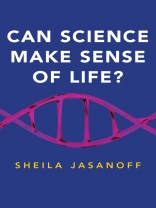Since the discovery of the structure of DNA and the birth of the genetic age, a powerful vocabulary has emerged to express science’s growing command over the matter of life. Armed with knowledge of the code that governs all living things, biology and biotechnology are poised to edit, even rewrite, the texts of life to correct nature’s mistakes.
Yet, how far should the capacity to manipulate what life is at the molecular level authorize science to define what life is for? This book looks at flash points in law, politics, ethics, and culture to argue that science’s promises of perfectibility have gone too far. Science may have editorial control over the material elements of life, but it does not supersede the languages of sense-making that have helped define human values across millennia: the meanings of autonomy, integrity, and privacy; the bonds of kinship, family, and society; and the place of humans in nature.
Tabla de materias
Acknowledgements vi
Prolouge 1
1 A New Lens on Life 13
2 Book of Revelations 37
3 Life and Law: Constitutional Turns 64
4 Life in the Gray Zone 92
5 Language Games 117
6 A New Biopower 142
7 Life’s Purposes 169
Notes 180
References 187
Index 202
Sobre el autor
Sheila Jasanoff is Pforzheimer Professor of Science and Technology Studies at the Harvard Kennedy School












